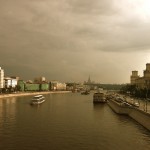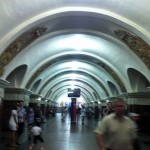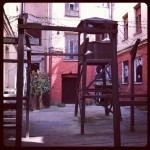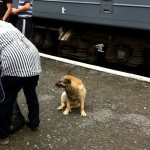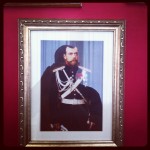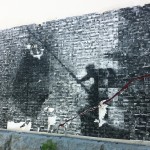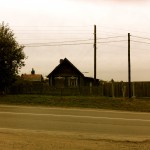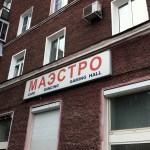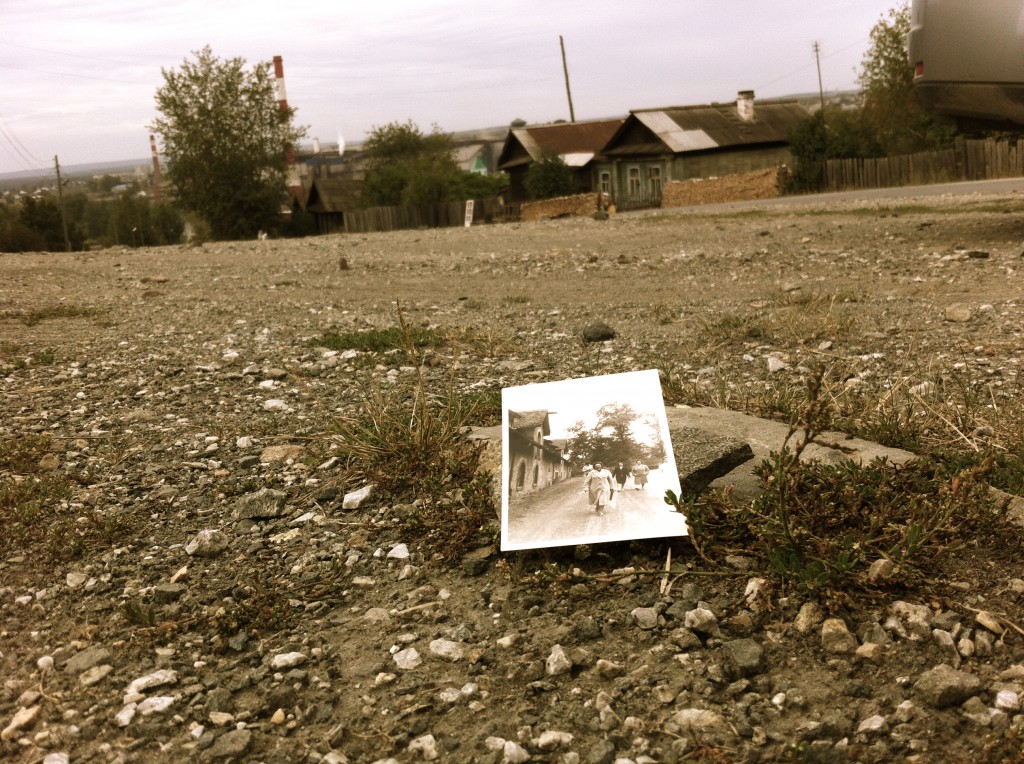
Today, I finally managed to visit two of the places my grandmother spent time here in the Urals, a small village named named Kosulino (Косулино), where she worked for three years, 1946 – 1949, and a small industrial town named Revda (Ревда́), which was the location of last camp she worked in before returning to Germany in 1950. Sadly, there are no remains of any of the camps from this time. A gruesome reminder of how diligently Stalin and his henchmen had tried to erase all traces of the many GULAGs around Yekaterinburg was the memorial to the victims of his terror we passed on the way. It is located on the spot where a mass grave with 18,000 of his victims was discovered in the early Nineties.
On a more cheerful note, thanks to local guide Luba Suslyakowa (if you ever come to Yekaterinburg and the Urals you should book one of her tours) and her friend Sergey who drove us around, I was also able to do a very touristy thing and stand with one leg in Europe and one in Asia, as is the local custom at the Europe/Asia-bordermarker. I did not have champagne though.
—
Heute habe ich es endlich an Zwei der Orte geschafft, an denen meine Grossmutter hier im Ural untergebracht war. Es handelt sich dabei um das Dorf Kosulino (Косулино), wo sie für drei Jahre, 1946 – 1949, gearbeitet hat, und die Kleinstadt Rewda (Ревда́), wo sie das letzte Jahr vor ihrer Rückkehr nach Deutschland 1950 verbracht hat. Leider gibt es dort keinerlei Überreste der Arbeitslager mehr. Wie gründlich Stalin und seine Schergen auch die Erinnerungen an die Opfer und die GULAGs vernichten wollten, davon zeugt das nahebei liegende Denkmal für die Opfer seiner Terrorherrschaft – errichtet über einem Massengrab mit 18 000 Opfern aus den 30er Jahren, welches erst Anfang der Neunziger entdeckt wurde.
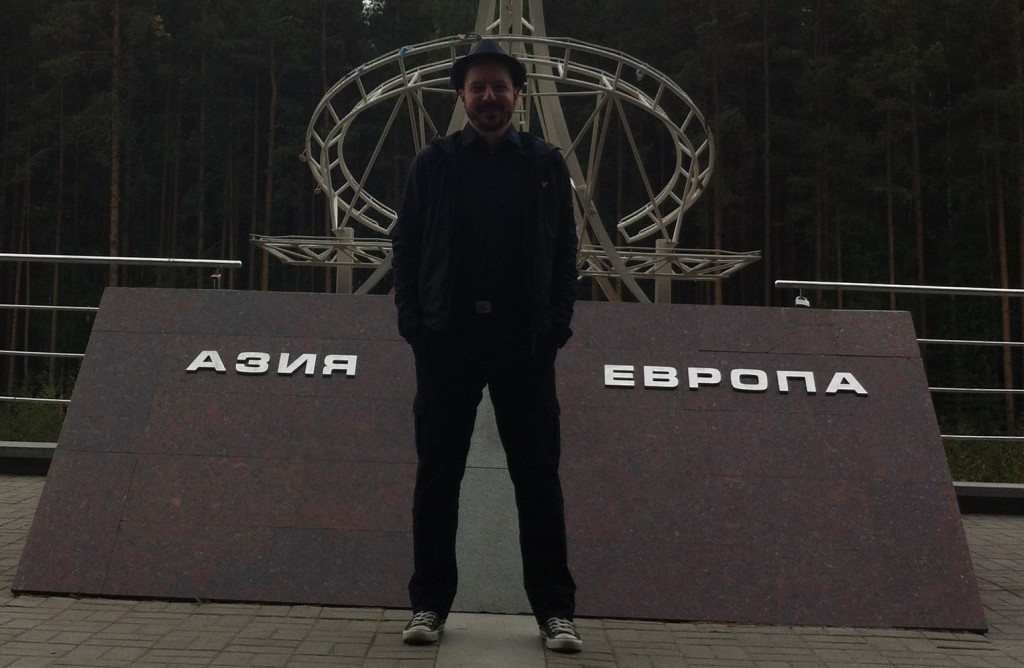
Etwas positiver war dann mein durch und durch touristischer Besuch am der Grenze zwischen Europa und Asien, die nahe Jekaterinburg verläuft. Und zwar dank meiner beiden Helfer, Reiseführerin Luba Suslyakowa (deren Touren man bei einem Besuch in Jekaterinburg und dem Ural auf jeden Fall buchen sollte) und ihrem Freund Sergey, unserem Fahrer. Champagner habe ich dort aber nicht getrunken.


